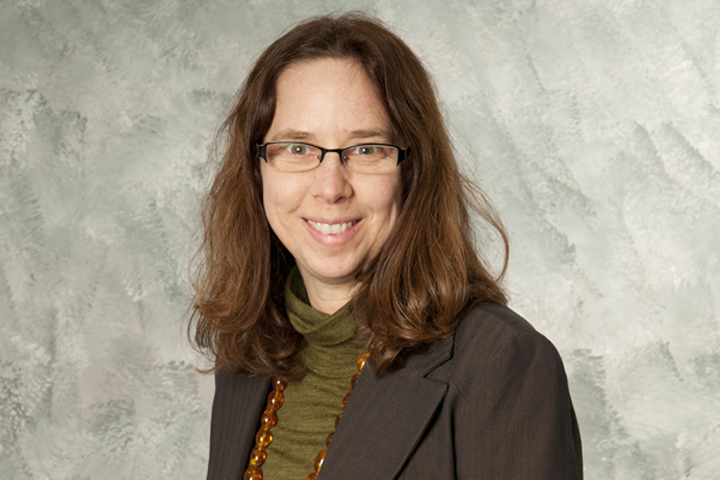The Department of Philosophy continues its faculty spotlight series. This month we feature Alison Bailey, a professor of philosophy and the director of the women’s and gender studies program (WGS).
Bailey’s scholarship is rooted firmly in the basic premises of feminist epistemology: Knowledge is socially situated; marginalized groups are positioned in ways that make them aware of things that are structurally invisible to groups with social privilege; and fresh philosophical approaches are revealed when inquiry begins in the lives of these socially marginalized groups.
For the past few years Bailey has been thinking about the social production of ignorance in relation to both epistemologies of ignorance and best practices for teaching philosophy students issues of social justice related to race and gender.
She has one article and two short pieces coming out this fall. Her “White Talk As a Barrier to Understanding the Problem of Whiteness” will appear in George Yancy’s edited collection White Self-Criticality Beyond Anti-Racism: What Is It Like to Be a White Problem? Her project in this chapter is to explain why the question “How does it feel to be a white problem?” cannot be answered in the fluttering grammar of white talk. White talk is a pattern of responses such as, “But my ancestors never owned slaves,” which white folks use to steer the conversation away from racialized harms and toward our own moral goodness. Bailey’s account develops an expanded version of Alice MacIntyre’s definition of white talk that is attentive to the racialized bodily scripts that accompany white talk. She recommends replacing white talk with a discourse of vulnerability, where vulnerability is defined not as weakness, but as a condition for potential.
“Attention to white talk raised some questions for me about to teach material on race in philosophy classrooms,” Bailey said. “It got me thinking about how to engage student who just shut down during discussions for racism, affirmative action, or hate crimes.” Her essay “Navigating Epistemic Pushback in Feminist and Critical Race Philosophy Classes” addresses how to engage student resistance. The piece focuses on undergraduate philosophy classes that explore questions at the intersections of race, sex, gender, class, ability, and coloniality. She uses four examples of as a point of departure to give readers a sense of the kind of resistance she has in mind and argues that I both standard critical thinking and “safe spaces” pedagogies are not a wholly effective means of navigating this resistance. “The push back in our classrooms is unique,” Bailey explained, “and our pedagogies must reflect that.” She recommends treating epistemic pushback as a “shadow” text and encourages students collectively to engage these discursive moves alongside the assigned texts.
Bailey recently gave her paper “White Talk and Epistemic Closure” at the Society for Women in Philosophy (SWIP) and at the annual meeting of the North American Society for Social Philosophy (NASSP). In the spring she presented “A Reproductive Approach to Indian Surrogacy Work” to the philosophy community at Eastern Illinois University.
This year Bailey joined the editorial boards of Hypatia: A Journal of Feminist Philosophy and Philosophy of Race book series. She continues to co-edit (with Ann Garry) the “Feminist Philosophy” category for PhilPapers, the premier online database for academic philosophy.
This fall Bailey is chairing a search committee for the first joint faculty hire in the women’s and gender studies program. The program is collaborating with the Department of Sociology and Anthropology to hire a faculty member at the assistant professor level. Bailey said that she hopes that this appointment will help the program to launch a queer theory certificate. Bailey is also working closely with Stacia Kock, the new assistant director, to revitalize and grow the WGS minor, graduate certificate, and WGS concentration in the School of Social Work.
Bailey is also working with WGS faculty to get ready for the annual spring Women’s and Gender Studies Student Research Symposium. This year our keynote speaker will be Jennifer Lisa Vest. Vest has a Ph.D. in philosophy, but currently works as a diversity consultant, spoken word performer, and scholar. She identifies as a mixed-race artist who combines poetry, philosophy, spoken word, and feminist theory to address issues of social justice.
On a more personal level, Bailey spent the better part of last year writing a 200-page illustrated coffee-table-sized book on the social history of her maternal grandmother’s Monmouth County, New Jersey, ancestors. “It was an eye-opening and humbling experience,” Bailey remarked. “I hope it will give me some additional insight into my philosophical work on race, identity, and colonization.”

